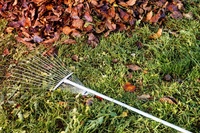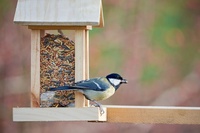This how-to-take care of orchids guide will ensure you can look after your precious orchids for a long time and even get them to repeat flower. They are relatively easy to care for but a little different from many other houseplants. They can flower for many months, and instead of throwing them away after flowering once, all it takes is some knowledge and patience until it flowers again. Trust us, when they do bloom again - it's incredibly satisfying! You can even get them to flower over and over, living for many years.
Understand How Orchids Grow
It’s helpful to consider how orchids grow in their natural environment. They are epiphytes, meaning they don't grow in soil or compost, but they grow off the side of trees, holding on to the bark and taking nutrients and water from the air. In turn, the tree supporting them doesn't get damaged. Some orchids grow in particular soil conditions, but this isn't needed to grow at home.
The Proper Water, Light, and Soil Requirements
Most importantly, orchids don't need much water at all. Too much water will kill them very quickly. Allow your orchid to dry out between each watering and limit that to once every two weeks. We recommend watering and allowing the excess to drain out of the bottom of the pot and never letting them sit in water. Stand them in bright but indirect light. Direct sunlight will cause them to burn, but they need a bright room to flower. Orchid bark is the best growing medium, which you can buy ready-made up.
Prune Orchids for Repeat Flowering
Orchids can flower at least once a year, depending on the species, for many weeks. The most important thing to note is keeping your orchid in the right conditions. After flowering, the stem can be cut back, and you will often see new growth, which can be staked upwards for flowering.
Get to Know Common Pests and Problems
- If you notice leaves shrivelling up, this suggests the orchid isn't being watered enough.
- If your orchid is generally struggling, this could mean you've overwatered. Check the roots and ensure there aren't any black/brown or squishy areas, and if there are, this could mean too much water or pests and diseases causing root rock. Remove the damaged roots, repot in new orchid bark and water only when the roots have dried out in-between watering.
- Orchids don't tend to have many pests apart from more common pests such as aphids, mealybugs, and fungus gnats - all of which can be resolved with a spray of water or a mix of water and gentle washing liquid.
We have some beautiful orchids in store and accessories to keep them blooming. Visit us for a new year's treat.




